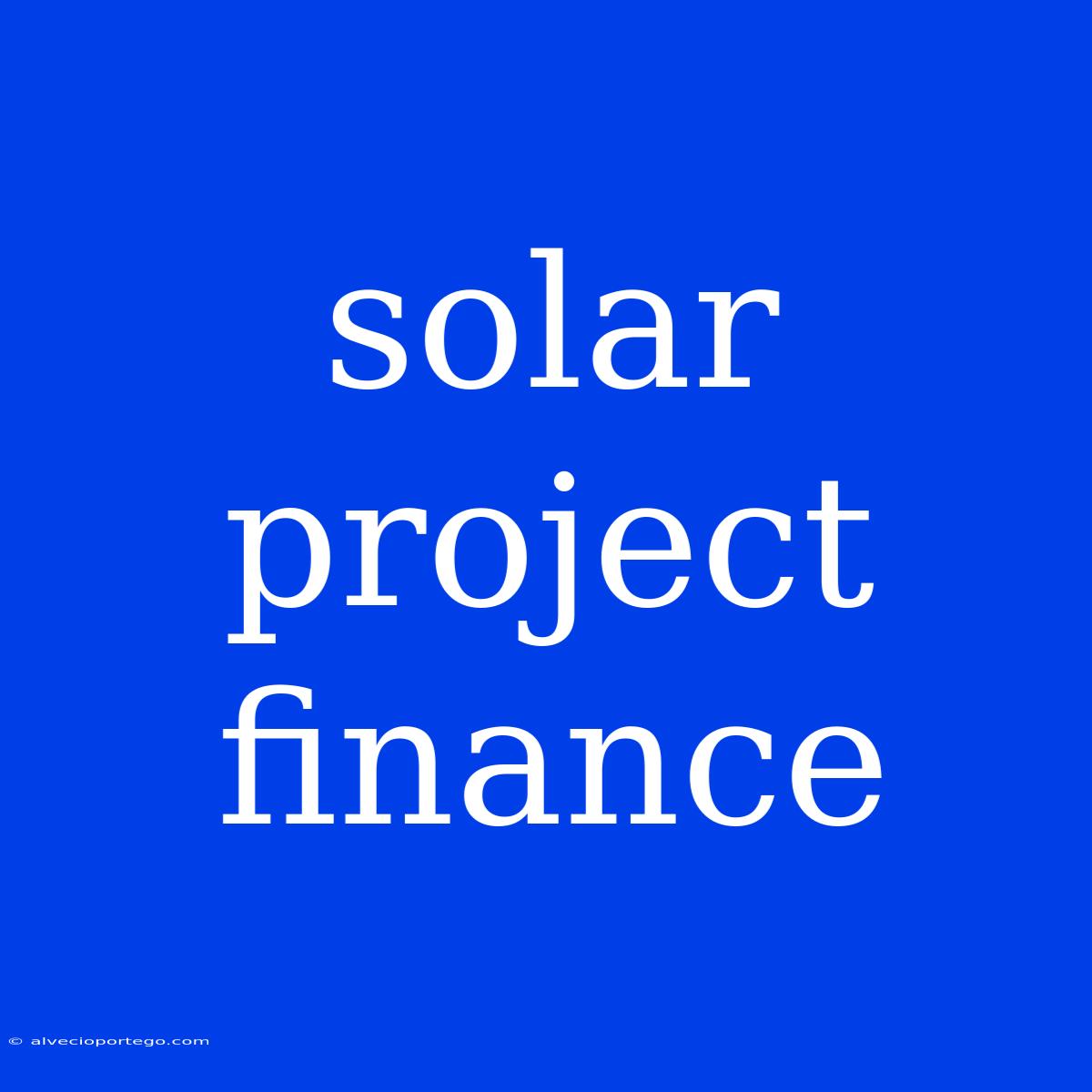Solar Project Finance: A Guide to Funding the Sun's Energy
The global demand for renewable energy is booming, and solar energy is at the forefront. With the cost of solar technology plummeting and government incentives becoming increasingly attractive, more and more businesses and individuals are making the switch to solar. However, the initial investment can be significant, which is where solar project finance comes in.
What is Solar Project Finance?
Solar project finance refers to the process of securing funding for the development, construction, and operation of solar energy projects. It encompasses a variety of financial instruments and strategies designed to make solar power accessible to a wider audience.
Types of Solar Project Finance
There are several different ways to finance a solar project, each with its own advantages and disadvantages:
1. Debt Financing:
- Bank Loans: Traditional bank loans are often used for smaller solar projects, with terms ranging from 5 to 20 years.
- Green Bonds: These bonds are specifically designed to finance environmentally friendly projects, including solar power. They offer competitive interest rates and attract investors looking for sustainable investments.
- Project Finance Loans: These loans are typically used for large-scale solar projects and are structured based on the project's cash flow. They often involve multiple lenders and require detailed financial modeling.
2. Equity Financing:
- Private Equity: Private equity firms invest in solar projects with the goal of generating returns through dividends or by selling the project at a later stage.
- Venture Capital: Venture capitalists invest in early-stage solar companies with high growth potential.
- Crowdfunding: This method allows individuals to invest small amounts in solar projects, often through online platforms.
3. Government Incentives and Subsidies:
- Tax Credits: Many governments offer tax credits or rebates to incentivize solar installations, lowering the overall project cost.
- Feed-in Tariffs: These programs guarantee a fixed price for solar electricity generated, providing long-term revenue stability for project owners.
- Grants: Some governments and organizations offer grants to support solar project development.
Factors to Consider When Choosing a Solar Project Finance Option:
- Project Size and Scope: Larger projects typically require more complex and sophisticated financing structures.
- Project Location and Regulatory Environment: Government incentives and regulations can vary significantly by location.
- Project Risk Profile: The financial viability of a solar project is influenced by factors like weather patterns, energy market fluctuations, and technology risks.
- Project Owner's Financial Situation: The financial history and creditworthiness of the project owner play a crucial role in securing financing.
Benefits of Solar Project Finance:
- Reduced upfront costs: Solar project finance allows businesses and individuals to access solar power without a significant upfront investment.
- Lower operating costs: Solar energy can significantly reduce electricity bills, leading to long-term savings.
- Increased investment opportunities: Solar project finance opens up avenues for investors to participate in the growing renewable energy market.
- Environmental benefits: Investing in solar power helps reduce greenhouse gas emissions and promote a sustainable future.
The Future of Solar Project Finance:
As the solar industry continues to grow, innovative financing models are emerging to meet the increasing demand. These models are expected to include:
- Pay-as-you-go solar: This allows customers to finance solar systems through monthly payments based on energy consumption.
- Solar lease agreements: These agreements provide access to solar power without owning the system, making it more accessible to renters and businesses with limited capital.
- Microgrids: These localized energy systems allow communities and businesses to generate and manage their own solar power, offering greater control and energy independence.
In Conclusion:
Solar project finance plays a vital role in unlocking the potential of solar energy. By providing various funding options and incentives, it empowers businesses and individuals to transition to a cleaner and more sustainable energy future. As the industry evolves, new financing solutions will continue to emerge, further driving the adoption of solar power on a global scale.

